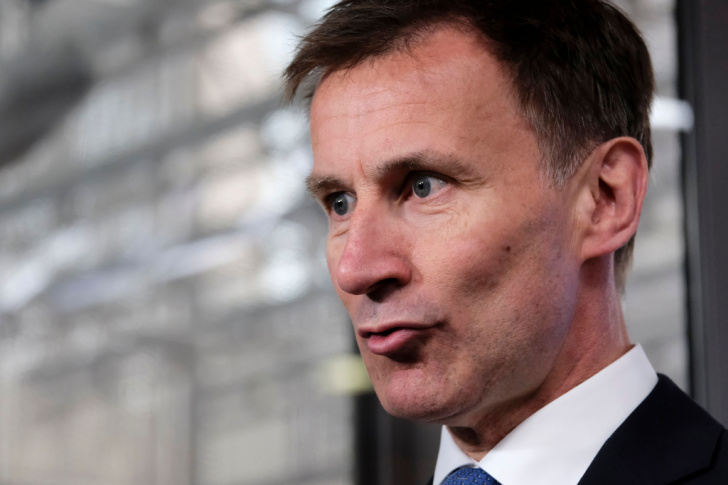Autumn Budget preview: UK braces for spending cuts and tax rises as recession looms
Government to close £55bn fiscal black hole with cuts and tax hikes which could amplify economic slowdown
Government to close £55bn fiscal black hole with cuts and tax hikes which could amplify economic slowdown

Prime Minister Rishi Sunak and Chancellor Jeremy Hunt are set to announce £55bn worth of tax increases and public spending cuts in the Autumn Budget on Thursday.
Business advisory firm Trachet, which predicts £33bn worth of public spending cuts and around £22bn of tax hikes in the upcoming, believes that the UK Government’s fiscal measures could have “distressing consequences” for industry leaders and investors, following the Bank of England’s (BoE) decision to raise interest rates by 0.75 percentage points in November.
“The [BoE] announcement generated mass concern from industry leaders and the investment sector, following a drop in the value of the pound coupled with the surge in the country’s borrowing costs,” says CEO Claire Trachet.
“There are now renewed concerns in terms of the effect the Autumn Statement will have on the markets – especially after the chaos that ensued following the last high-profile government announcement in the form of the mini-budget.”
According to Susannah Streeter, senior investment and markets analyst at Hargreaves Lansdown, Sunak and Hunt are “clearly fearful of sparking another bond market tantrum”.
“From their perspective, the reversal of planned tax cuts isn’t deemed to be enough to satisfy investors, which is why they are expected to try and trim tens of billions off government departmental budgets,” she says.
“While it’s clear that the UK Government still has a slightly higher disciplinary bar to scale, due to the chaos which ensued in September, the risk is that ministers go too far and too fast in slashing spending.
“Already the outlook for the economy is ominous, with the longest recession since the 1920s forecast by the Bank of England.”
Aside from the previously announced increase in corporation tax from 19% to 25%, the government is considering pushing back some infrastructure investment and increasing the windfall levy on energy producers.
The government is also expected to introduce stealth taxes in relation to income tax, National Insurance contributions (NICs) and inheritance tax, which would see thresholds frozen.
Streeter believes that capital gains and dividends will also be targeted for tax hikes in the Autumn Budget.
“There is concern that entrepreneurs will be penalised with the increase in capital gains and dividend tax mooted. Targeted tax breaks should be part and parcel of this new regime to reward companies investing in productivity upgrades, through re-skilling or automation,” she says.
“For business owners who pay themselves in dividends, this is yet another blow at a time when they are wrestling with existential threats to their businesses from runaway energy bills to rising wages and prices.”
Meanwhile, the freezing of income tax thresholds would see UK taxpayers quickly pulled into higher tax bands as their incomes rise in response to inflation. The government is also expected to cut the threshold at which the 45% income tax rate kicks in from £150,000 to £125,00O.
According to Streeter, the percentage of taxpayers paying either higher or additional rate tax has risen from 6.5% in 1990 to 18% today.
High earners could also be hit by changes to pension tax relief.
Streeter warns that if the government wants to make major tax changes, it should provide enough notice to enable individuals impacted to manage the change – particularly in areas like Capital Gains Tax.
Accountancy firm Menzies believes that the Budget must outline support businesses and promote growth amid the tough economic outlook.
“With past policy mistakes off the table, the Chancellor can now press ahead with the delivery of a long-term fiscal plan to support economic growth and equip businesses to ride out the stormy conditions that lie ahead,” says Richard Godman, tax partner at Menzies.
“Despite the current squeeze on public spending, [the Chancellor] must aim to re-establish a sense of stability.”
Menzies are calling on the government to carefully consider three key areas that could help businesses, including going ahead with mini-Budget proposals for 40 new investment zones; supporting increases to capital allowances; and simplifying tax codes.
“It is disappointing that the government has confirmed that min-Budget proposals to establish up to 40 new investment zones in England are now ‘under review’,” says Godman, pointing out that this would enable local businesses to benefit from tax breaks such as 100% tax relief on investments in plant and machinery.
He adds that the government should also stick with mini-Budget proposals to make the £1m Annual Investment Allowance (AIA) permanent. Prior to the mini-Budget, this was due to revert to £200,000 in January 2023.
“Businesses are concerned that the new Chancellor could withdraw this decision, and some are holding off from firming up their investment plans until they know for sure. With many businesses facing extremely challenging cost increases, we hope that this is a policy that the new Chancellor will be prepared to back,” he says.
There are voiced concerned over where the axe will fall in public spending. Here, the Chancellor is expected to announce a freeze on funding increases to government departments.
Although the NHS, which is already facing a difficult winter, is likely to be ringfenced, funding issues and pay disputes are being faced in other government departments.
“As the cost-of-living crisis bites, cutting spending on benefits or pensions and limiting public sector pay, could worsen the recession as people find real incomes deteriorating further,” concludes Streeter.